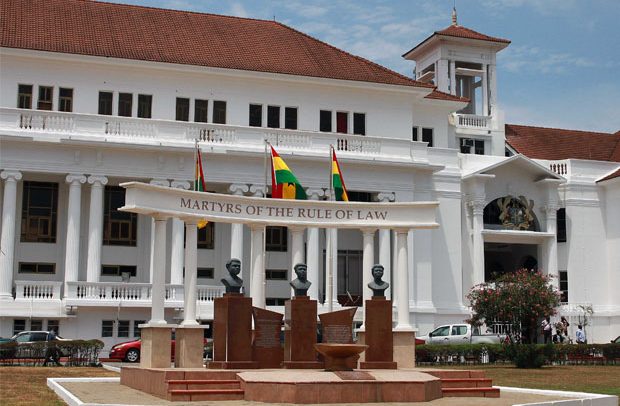In a bid to accelerate the resolution of legal challenges to the anti-gay bill, Parliament has formally called upon the Supreme Court to hasten the proceedings concerning the interlocutory injunctions filed against the legislation by private legal practitioner Richard Dela Sky and gender activist Dr. Amanda Odoi.
Both Sky and Odoi have independently initiated legal actions seeking to block the enactment of the anti-gay bill, citing constitutional infringements on the rights of homosexuals.
Expressing concerns over the delayed adjudication of these cases, Parliament points to the expeditious handling of a similar case involving MP for South Dayi, Rockson-Nelson Dafeamekpor, while the contentious cases brought forth by Sky and Odoi remain pending.
In a letter addressed to the Supreme Court’s Registrar on Thursday, March 28, 2024, legal representatives for Parliament from Sory@ Law, Barristers and Solicitors underscored the urgency of resolving the lingering legal disputes.
The letter stated, “It will accordingly be appreciated if the parties are given a very early date to expedite the hearing of the applications pending before the Court. We trust that as the applications raise matters of public interest, you will give our letter the attention it deserves.”
Meanwhile, the National Democratic Congress (NDC) has raised concerns regarding perceived bias within the judiciary, questioning the differential treatment in expediting the trial involving the South Dayi MP’s application compared to the unresolved case of the anti-LGBTQ bill brought forward by Richard Dela Sky. In response to the mounting legal challenges, the Presidency opted to temporarily suspend the transmission of the anti-gay bill for presidential assent.
As tensions surrounding the controversial anti-gay bill continue to escalate, Parliament’s proactive step to urge the Supreme Court to prioritize the resolution of the pending legal disputes signals a heightened focus on confronting and addressing the complex legal and societal ramifications associated with the legislation.
By Vincent Kubi


